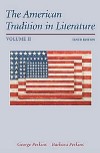Central to all of Thoreau's work is "nature," not only the setting for all human action but also the repository of all the divine and necessary laws by which those actions are to be conducted. Thoreau was grounded in the "facts" of the world he found at his feet and within arm's reach. Like Whitman, Thoreau interpreted the immediate elements around him as microcosms of truth found operational in the universe-at-large. Not surprisingly, then, where Emerson tends to communicate in sweeping abstractions, both Whitman and Thoreau populate their expressions in rich catalogs of images. For the spiritual person, the study of nature is the foundation for interpreting all knowledge and human experience. The right response to nature is a stewardship of its gifts and resources. An echo, in part, of Emerson's concept of the intuitive character of the "American scholar," another central motif in much of Thoreau's socio-political works is the role of the "moral sense," most fully explored in "Civil Disobedience." Thoreau had an unshakable faith in the power of the morally-directed individual to stimulate change in an unresponsive, amoral, and unjust society. It is on the basis of that capacity that people are to be judged and their work embraced or criticized. "Simplicity" and "humility" also figure significantly among Thoreau's values. A person's choice to live simply complements the same attribute in the processes of nature, an example of the "natural correspondences" between the individual and the universe. "Humility" opens the human mind to the majesty of nature to which each person is inextricably connected, both physically and spiritually. |



 2003 McGraw-Hill Higher Education
2003 McGraw-Hill Higher Education